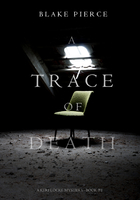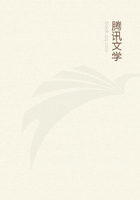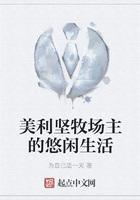I Am Only One Person
Never doubt that a small group of thoughtful,
committed citizens can change the world. Indeed,
it is the only thing that ever has.
Margaret Mead, noted anthropologist
It seemed to me that stepping up to initiate change should be a very natural thing for each of us to do. So as I began to research and explore the concept of stepping up, I naturally began to ask myself, Why don't we often claim our power to change things? What keeps us on the sidelines rather than stepping up to create change?
My publisher, Berrett-Koehler, conducted an online survey to try to understand why we don't step up. We asked a simple question: Why don't you step up? The responses from 325 people across the United States and Canada, most of whom are professionals, revealed four primary reasons people say they don't step up. The number one answer was “belief I can't change things/I am only one person” (46 percent), followed by the belief that it is “others' responsibility to change things” (20 percent), “getting caught up in the daily grind” (18 percent), and the “fear of looking bad if I try and nothing changes” (16 percent).
The Power of Aggregate Influence: Why We Think We Can't Change Things
Let's start with the most common response, the belief that things can't change and that “I am only one person.” One thing that keeps us from stepping up is the belief that one person cannot really do much. Even those who have stepped up and done great things have often wondered what one person can really do. As one person I interviewed told me, “I know what I have done is just a drop in a bucket, one that has lots of holes in it.”
Yet history shows us that one person often makes a huge difference and that behind most great change was one person or a small group of people who got the ball rolling. One reason we may feel disempowered about stepping up is that we forget to factor in what I call aggregate influence. We look at our own small actions, and they feel insignificant in the big scheme of things, but we forget that our influence is very large when aggregated with the actions of others. The paradox of such aggregate influence is that while real change is often dependent on many people taking action, in the end this aggregate influence requires each individual to act.
Here are a few simple examples. I live in a neighborhood in the middle of a large city. Partly because many tourists and other visitors (along with many homeless people) walk through our community, there is lots of litter in my neighborhood. To keep the neighborhood clean, I almost always pick up garbage when I walk around.
On the one hand, my actions as one person have little impact on the cleanliness of my community. Yet if even 10 percent of the people in my neighborhood behaved as I do, there is little doubt that such aggregate influence would make for a very tidy place. The paradox is that I can control only my own actions and am only one person, but the aggregate influence of lone individuals like me is significant.
The same is true in an organization. Let's say your company has a poor brand image when it comes to providing personal, caring service. You decide you want to do something about it but think, “I am only one person.” Imagine what would happen if even 10 percent of the people in your organization made it their mission to change the image your customers have of your enterprise. Your stepping up may not change things, but when aggregated with the efforts of others, the image of an entire brand can be transformed.
Let's take a larger problem. The oceans of our planet are in increasingly poor condition. The two main contributors to the state of the oceans are overfishing and garbage. Around the world, even in the most remote places such as Midway Island which is over two thousand miles from the nearest continent, birds and sea life choke on garbage that people throw into the oceans. This garbage is mostly made up of plastics that do not biodegrade. The most visible symbol of this issue is called the Great Pacific Garbage Patch, an area where trash has accumulated in the Pacific Ocean more or less the size of Texas. That's right, TEXAS!
The best way to imagine this garbage patch is as a loose but coherent set of floating garbage that has been collecting since the 1950s. The environmental risks posed by the Great Pacific Garbage Patch are significant. The area supports minimal marine life, but birds, sea mammals, and fish mistake the garbage for food (check out www.midwayjourney.com). The garbage carries a hidden payload: oily toxins that have accumulated in the plastics. The plastics appear to absorb and concentrate these toxins, which are eaten by unwitting sea creatures. Ultimately, the toxins wind up being recycled inside of us when we eat the seafood.
What can one person do about all this garbage choking the oceans? Well, if you think about it, this is a problem that can be solved ONLY one person at a time. That is why, whenever I am on a beach or even on a street where garbage might fall into a storm drain, I make it my job to pick it up. That is why I have also taken a simple pledge that I hope you will take: no plastic straws, no plastic water bottles, and no plastic shopping bags. I know I am only one person and in one sense my actions are insignificant. But the aggregate influence of one person by the millions being careful about what they throw into the oceans, rivers, and lakes is beyond measure. In fact, no government or the United Nations can solve the problem of garbage in the oceans; it can be solved only by one person times many stepping up.
Doubt one person can matter? Take the case of Beth Terry, a California accountant who read an article in 2007 about the garbage patch and saw pictures of birds in the south Pacific choking on plastic bottle tops and toothbrushes. She was only one person but set herself on a campaign to rid her life of as much plastic as possible and began blogging about her personal efforts (www.myplasticfreelife.com). Though she still makes her living as an accountant, she has become a regular media spokesperson, has been featured by the likes of Ladies Home Journal and ABC News and personally spearheaded a campaign to get Clorox to create a recycling program for its Brita water filters, which until then could not be recycled. She was only one person but that hasn't stopped her from making a huge difference. By the way, forty million water bottles are thrown out every day in the world or over ten billion a year!
What If We Step Up and Nothing Changes?
About one-sixth of the people who answered our survey said that fear of failure was another reason they won't or don't step up. What if we step up and nothing changes? After all, for every person who stepped up and changed things, there must be many others who tried and fell short. What if I change myself, and my partner does not make changes? What if I step up and try to take initiative in my company, and others don't? What if I try to change something about myself, but find that, in spite of my best efforts, I don't get better?
It is true that if we step up there is no guarantee that things will change. You may step up and change yourself, but your marriage may fail anyway; you may try to rally your colleagues to improve morale without achieving the end result; and you might give up water bottles and pick up garbage to keep it from going into the sea, but that garbage whirlpool might grow anyway.
But here is the truth: There is a 100 percent guarantee that nothing will change if you don't step up. What's more, we are much more likely to regret having stayed on the sidelines than we are to regret our failures. This is something I learned when I interviewed older people for my bestselling book The Five Secrets You Must Discover Before You Die; people rarely regret their failures but often regret not trying.
A woman recently talked to me about her failed marriage and how hard she had tried toward the end to change herself. Even though she felt her husband was more to blame, she decided to work hard on changing her own patterns of behaving and relating. She told me, “When it ended, I did not have any regrets because I knew I had done everything I could have done to change myself to make things better.”
Ken Lyotier is a man you will read about in more detail later in this book. His odds of succeeding would have been pegged somewhere near zero. He told me, “At some point in our lives we have to take the risk of believing we can change things. Even if you don't succeed, you might inspire others to try. There is a force in all of us that wants to just sit on the sofa, get a beer, and watch the football game instead of believing and risking. The risk we are afraid of is that we will step up and won't find anything, but if you just sit, there is a guarantee that you won't.”
This is the challenge each of us faces—to take the risk to step up even though we know we may fail, or to sit on the sofa and talk about how things might have been different had we stepped up.
Holding back has its rewards. When we hold back, we can always protect our ego, telling ourselves that if we had really tried, who knows what might have happened? It is not hard to understand why we hold back since none of us enjoys failing. But failure is not the worst thing that can happen to a person. In fact, some of those who stepped up and made the biggest difference often experienced multiple failures along the way.
But I Am Too Busy to Step Up!
Another reason people (18 percent) told me they don't step up is that they are simply too caught up in the daily grind. We are often simply too busy getting through the tasks of our daily life or work to step out of that routine to try to influence change. Can it really be that we are simply too busy to step up and make a difference?
Busyness is often the greatest barrier to legacy in its many forms. It is easy to let trivial matters fill our calendars and days rather than focusing on making a difference. Even as I write this chapter, my e-mail inbox is filled with scores of messages relating to trivial matters. But three e-mails relate to a nonprofit board on which I serve, an organization that serves homeless people in my community. The organization is in desperate need of reimagining its vision and has asked me to help. That work will not pay the bills nor is it clawing at me with any urgency compared with the trivial e-mails, but I am pretty certain that stepping up to help that board could actually lead to things being different in some small way in the city where I live. This is the choice we must often make, between legacy and the immediate, between what claws at us and what calls to us.
What have you been meaning to step up to do that keeps getting sidelined by the deceptively urgent and ultimately trivial?
My friend Jeremy has a full life of family obligations and the responsibility of running two businesses. But when his son Robin developed Type 1 diabetes as a teenager, he and Robin became aware that the medical help they took for granted was often not available to families in much of the developing world. At Robin's prodding, together they stepped up to initiate an effort to get cities in the developed world to adopt villages in the developing world to provide the skill and resources needed to manage diabetes in their communities. Robin was an active teenager and avid soccer player who was suddenly thrown into a world of needles and restricted diets, but he resisted any temptation to self-pity in favor of helping others, and his father fought the temptation of the daily grind that constantly clawed at him. As I write this they are well on their way to their first Type 1 village in Guyana.
Not stepping up because of the tyranny of the daily grind may be the greatest risk of all. It may mean you come to the end of your life or career wondering what might have happened if you had stepped up. You may wind up feeling deeply the words of the late Rabindranath Tagore, Nobel-prize winning poet in India: “The song that I came to sing remains unsung to this day. I have spent my days in stringing and in unstringing my instrument.”
Let Someone Else Do It
Finally, about 20 percent of those who responded said that they don't step up because they believe it is someone else's responsibility to change things. Now, this is one reason that few of us would admit to, but we all know we have given in to this belief.
I realized how easy it is to fall into this trap after having an argument with my wife. I was focused on what my wife needed to do to fix our marriage instead of taking responsibility for my part. The more I focused on what she should do, the less powerful I felt and the less impact I could have. Even if the problem was only 10 percent mine (and I assure you it was far larger than that), by focusing on what I can do instead of what someone else should do is always the right place to begin.
Whenever we focus on what others need to do, we give away our power and let ourselves off the hook. My mother was Canadian and my father American, so I am privileged to be a citizen of both Canada and the United States. Several years ago I tried without success to lead an effort to get Canadians to take a national pledge of sustainability. The idea was simple: get millions of Canadians to take a pledge to commit to sustainability in our lifetime. Although some people got excited by the prospect, many said, “Canada is so small, what difference would it make if we take this pledge? Look at India and China. That is where you need to focus, because if they don't act we are all doomed.”
But I saw the problem differently. It is true that Canada is a relatively small nation with only 33 million people, but Canada also has the highest per capita energy use of any country in the world. Besides, those of us living in Canada cannot fix China or India; all we can do is to choose to act right here where we are, trusting others to act in their sphere of influence. We can't fix China or India any more than I could fix my wife or you can change anyone in your company besides yourself.
This gets at the heart of the challenge. It does not matter what anyone else is or is not doing; the place to begin is always right here and right now. This tendency to think that others, instead of us, need to change is both insidious and disempowering.
Howard Behar is the former president of Starbucks International and author with Janet Goldstein of the book It's Not About the Coffee. When I interviewed Howard for this book, he told me a story about the first managerial position he had following university, running a furniture store that was part of a family-owned chain. During his first month, the owner of the company, a man well into his seventies, came to visit Howard's store. On his way in from the parking lot, the owner saw a piece of garbage in front of the store and picked it up. Soon, he picked up a tiny cigarette wrapper and then began scraping some chewing gum from the sidewalk outside the store. At that point, Howard said, “Hey, you don't need to do that. I will have someone come pick this up later.” The old business owner stood up, looked Howard square in the eye and said, “Howard, if not me, who? If not now, when?”
Howard said this set him on a lifelong journey of picking up garbage and of refusing to hire employees at Starbucks who didn't see it as their responsibility to pick things up.
What I set out to do is to find people who stepped up and to determine what they had in common. I wanted to understand why some people step up and change things. More importantly, I wanted to understand the secrets to how we can step up. The chapters that follow reveal what I discovered, the secrets to stepping up, and how to make a bigger difference in your sphere of influence.
Ways to Step Up
image Assume that aggregate influence is already happening. Whenever you are tempted to think, “I am only one person,” change your thinking to assume that the aggregate influence is already in process and that others are already acting or will act. Imagine the impact of many others stepping up with you.
image Question your hesitation. When tempted to stay on the sidelines, ask which you will regret more, trying without success or holding back. In most cases, thinking it through causes us to realize that failure or moderate success is much more palatable than having never tried.
image Focus on the important matters. As you begin each day, ask what important matters are being put aside for trivial matters that seem urgent but are not your legacy. Focus on your important contribution first, not around the edges of trivial matters.















